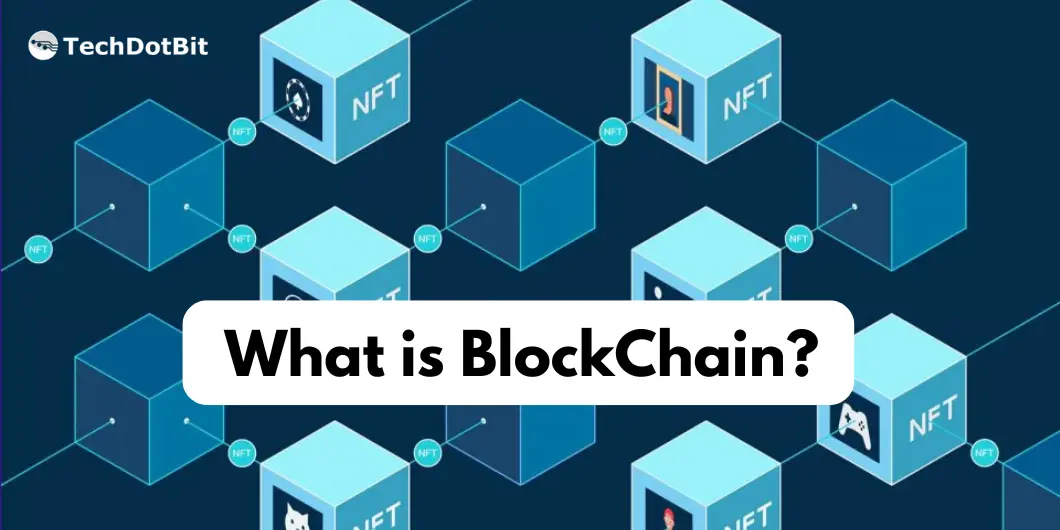In recent years, the term “blockchain” has become a buzzword in technology circles, often mentioned alongside cryptocurrencies like Bitcoin and Ethereum. But blockchain is much more than just the backbone of digital currencies. It’s a revolutionary technology that has the potential to transform industries far beyond finance, including healthcare, supply chain management, voting systems, and more. In this blog, we’ll dive into what blockchain is, how it works, and why it’s considered one of the most significant technological innovations of our time.
Understanding the Basics: What is Blockchain?
At its core, blockchain is a decentralized, distributed ledger technology that records transactions across a network of computers. The term “blockchain” comes from the way the technology structures data: in blocks that are linked, or “chained,” together. Each block contains a list of transactions, and once a block is filled with data, it is added to the chain in a linear, chronological order. This chain of blocks is immutable, meaning once data is recorded, it cannot be altered or deleted.
Here’s a simple analogy: imagine a blockchain as a digital book of records. Each page in the book is a block, and the entire book is the chain. Every time a new transaction occurs, it’s written on the next available page. Once the page is full, it’s permanently added to the book, and you move on to the next page. The book is distributed across multiple copies (nodes) worldwide, and everyone involved in the network has access to their own copy of the book.
Key Features of Blockchain
- Decentralization: Unlike traditional systems where a central authority (like a bank) manages data, blockchain operates on a decentralized network of computers. This means no single entity has control over the entire network, reducing the risk of corruption or manipulation.
- Transparency: Every transaction on a blockchain is recorded on a public ledger that anyone in the network can view. This level of transparency ensures accountability and builds trust among participants.
- Security: Blockchain uses advanced cryptographic techniques to secure data. Each block is linked to the previous one through a cryptographic hash, making it nearly impossible to alter the data without changing all subsequent blocks—a task that requires immense computational power and is practically unfeasible.
- Immutability: Once data is recorded on the blockchain, it cannot be changed or deleted. This immutability ensures that the records are permanent and tamper-proof, making blockchain ideal for applications where data integrity is crucial.
- Consensus Mechanisms: Blockchain networks use consensus mechanisms like Proof of Work (PoW) or Proof of Stake (PoS) to validate transactions. These mechanisms ensure that all participants in the network agree on the state of the blockchain, maintaining its integrity and security.
How Does Blockchain Work?
To understand how blockchain works, let’s break down the process into a few key steps:
- Transaction Initiation: When a transaction is initiated, it is broadcast to a network of computers (nodes). For example, in the case of a cryptocurrency transaction, this could be someone sending Bitcoin to another person.
- Validation: The nodes in the network validate the transaction using consensus mechanisms. They check factors like whether the sender has sufficient funds and whether the transaction adheres to the network’s rules.
- Block Formation: Once validated, the transaction is grouped with other transactions to form a new block. This block includes a cryptographic hash of the previous block, ensuring that the chain remains intact.
- Adding to the Blockchain: The new block is added to the blockchain in a linear, chronological order. Once added, it becomes a permanent part of the blockchain and cannot be altered.
- Completion: The transaction is completed, and the updated blockchain is distributed across the network, ensuring that all nodes have the most recent version of the ledger.
Applications of Blockchain
While blockchain is most commonly associated with cryptocurrencies, its applications extend far beyond digital money. Here are a few examples:
- Supply Chain Management: Blockchain can track the origin, movement, and authenticity of goods, providing transparency and reducing fraud in supply chains.
- Healthcare: Patient records can be securely stored and shared on a blockchain, ensuring privacy and accuracy while improving access to medical history.
- Voting Systems: Blockchain can create tamper-proof voting systems, ensuring that every vote is counted accurately and reducing the risk of election fraud.
- Smart Contracts: These are self-executing contracts with the terms of the agreement directly written into code. They automatically execute actions when conditions are met, reducing the need for intermediaries.
Top Companies Using Blockchain Technology
As blockchain technology continues to evolve, numerous companies have emerged as leaders in its development and application across various industries. Here are some of the top companies utilizing blockchain technology:
- IBM Blockchain: IBM is a pioneer in the enterprise blockchain space, offering solutions for supply chain management, digital identity verification, and cross-border payments. IBM Blockchain is known for its Hyperledger project, which provides tools for building secure and scalable blockchain applications.
- Microsoft: Through its Azure platform, Microsoft offers Blockchain as a Service (BaaS) to help businesses build, manage, and deploy blockchain networks. Azure’s blockchain solutions are used across industries like finance, healthcare, and logistics.
- Coinbase: Coinbase is one of the largest cryptocurrency exchanges in the world, offering a platform for buying, selling, and managing digital assets. The company is also heavily invested in blockchain technology to enhance the security and efficiency of its services.
- TechDotBit: TechDotBit is an innovative software development company that leverages blockchain technology to create custom solutions for various industries, including healthcare, logistics, and e-commerce. TechDotBit’s expertise in blockchain allows them to build secure, scalable applications that meet the unique needs of their clients.
- Ripple: Ripple uses blockchain technology to facilitate real-time, cross-border payments for financial institutions. Its blockchain-based payment protocol, RippleNet, is designed to be a faster and more cost-effective alternative to traditional payment systems.
- Amazon Web Services (AWS): AWS offers managed blockchain services, allowing businesses to set up and manage scalable blockchain networks. AWS Blockchain is widely used in industries such as supply chain management, financial services, and digital identity verification.
- Consensys: Consensys is a blockchain technology company focused on building infrastructure, applications, and tools for the Ethereum blockchain. They offer a range of services, including smart contract development, blockchain consulting, and decentralized finance (DeFi) solutions.
- Deloitte: As one of the “Big Four” accounting firms, Deloitte has been at the forefront of blockchain research and development. The company provides blockchain consulting services, helping businesses implement blockchain solutions to improve efficiency and transparency.
- Chainalysis: Chainalysis specializes in blockchain analytics and compliance, offering tools that help businesses and governments track and investigate blockchain transactions. Their services are widely used in the cryptocurrency industry to ensure regulatory compliance and prevent fraud.
- R3: R3 is a global consortium of financial institutions that developed Corda, a blockchain platform designed for businesses. Corda is used to build decentralized applications that operate within regulated environments, such as banking and insurance.
The Future of Blockchain
Blockchain is still a relatively new technology, and its full potential is yet to be realized. However, it’s already making waves in various industries, and experts believe that its impact will only grow in the coming years. As more businesses and governments explore blockchain’s capabilities, we can expect to see new and innovative applications that could revolutionize the way we live and work.
In conclusion, blockchain is more than just a trend—it’s a transformative technology with the potential to reshape industries and redefine the way we interact with digital systems. Whether it’s enhancing security, increasing transparency, or enabling decentralized applications, blockchain is paving the way for a more secure and connected future.
If you’re interested in exploring blockchain further, now is the perfect time to start. The technology is still evolving, and those who understand it early will be well-positioned to take advantage of its many opportunities.








